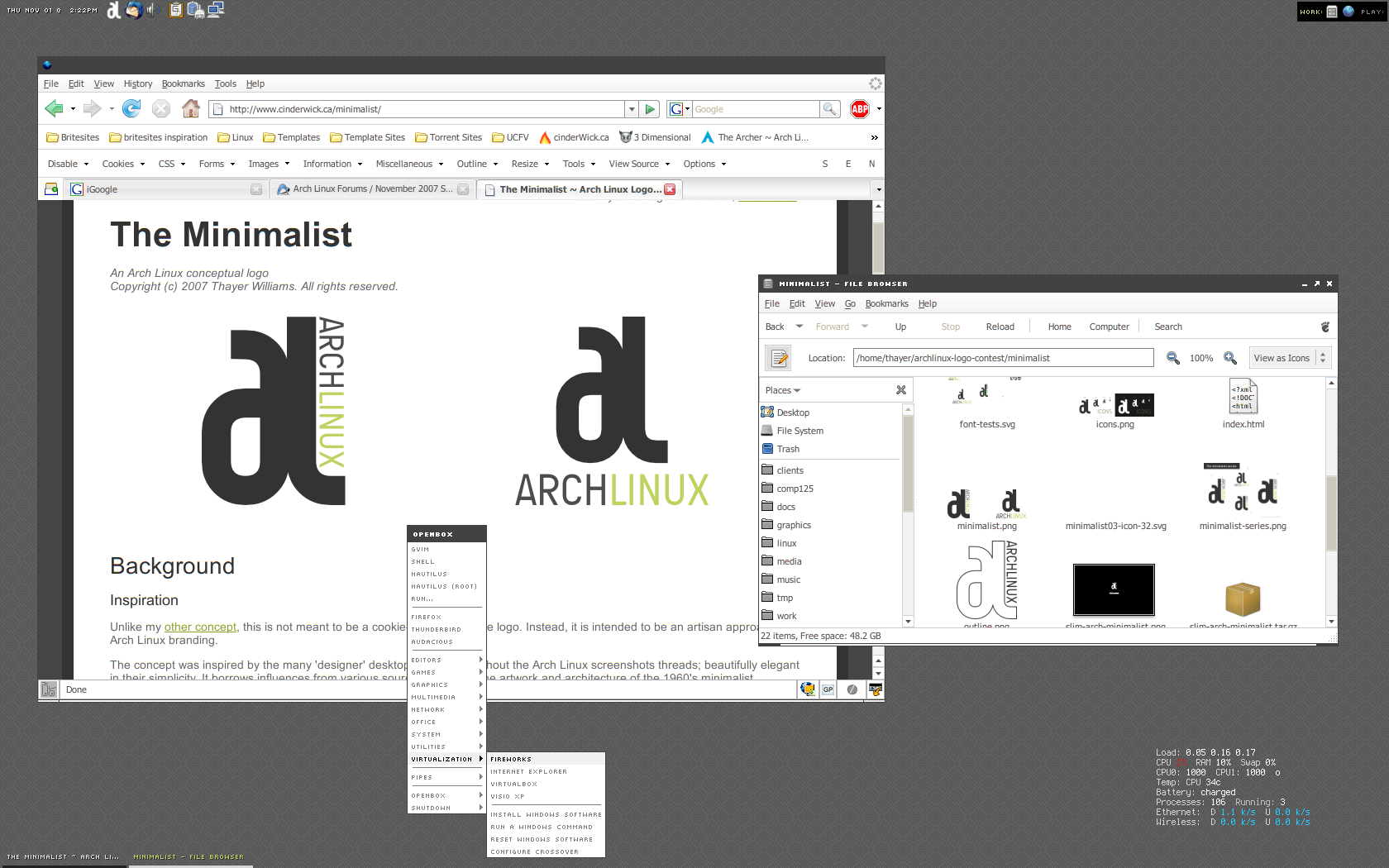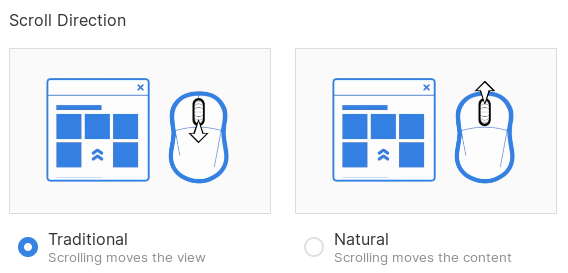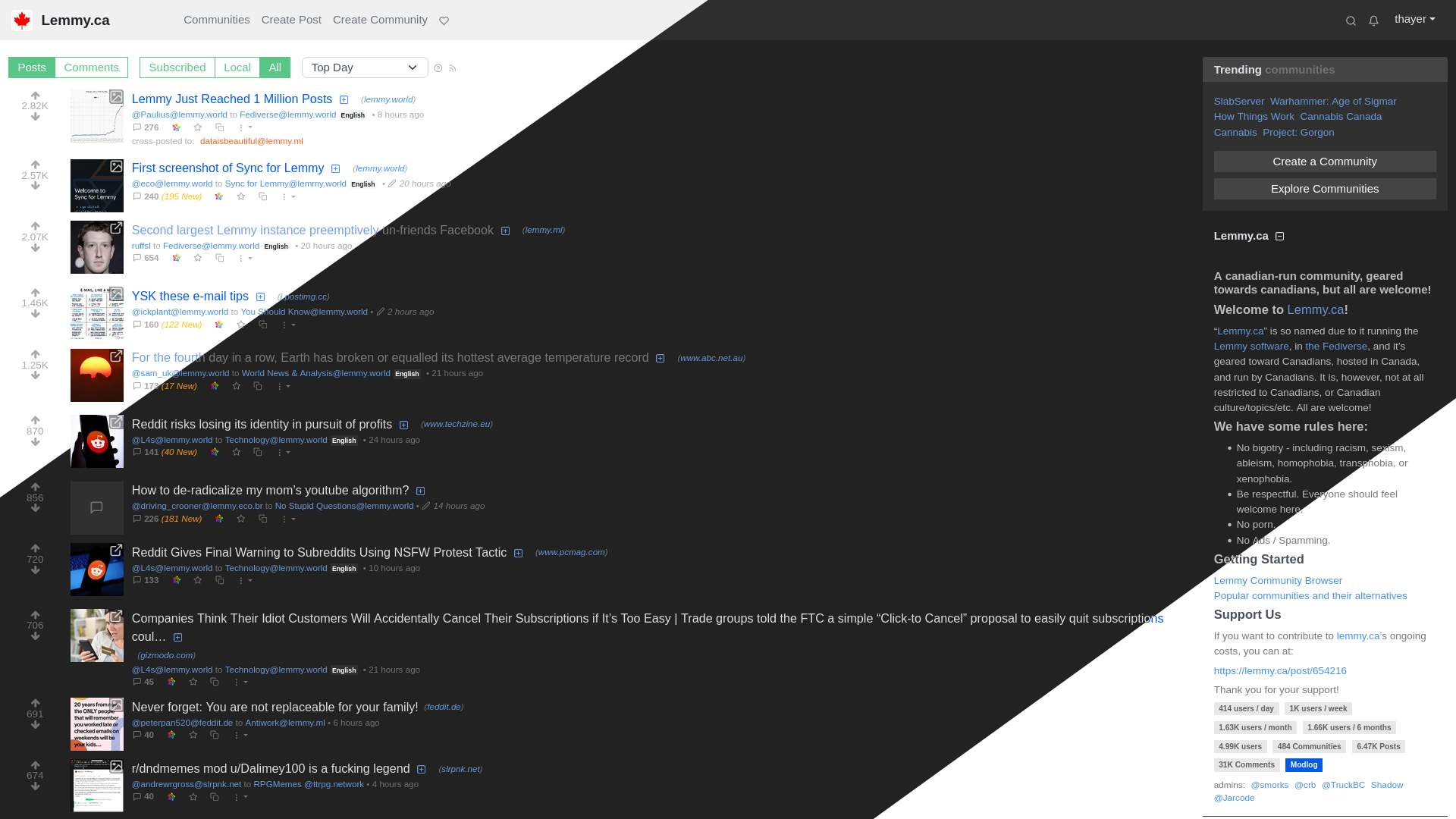Nice! A big thanks to the dev team that keeps this project going. Can't wait to see what finds its way into K9 (and the rebrand!).
While it would certainly be nice to see this addressed, I don't recall Signal ever claiming their desktop app provided encryption at rest. I would also think that anyone worried about that level of privacy would be using disappearing messages and/or regularly wiping their history.
That said, this is just one of the many reasons why whole disk encryption should be the default for all mainstream operating systems today, and why per-app permissions and storage are increasingly important too.
Yep, it seems Boost died today. I don't frequent reddit these days, but my wife is still a mod there and she was using Boost for moderation right up until last night.
On the odd occasion that I do go to my old subs, they're filled with repost bots and low value comments.
Debian, Fedora, and OpenSUSE all offer excellent alternatives depending on your reasons for staying.
First, it's important to realize that Meta is likely tracking you already through its ad-related services even if you don't have an actual FB account. Countless retailers and services are using Meta and Google for ads and analytics and it's virtually impossible to be completely off their radar if you do any online shopping, banking, or service consumption.
Even with the use of VPNs, uBlock and other tools, Meta likely already has your particulars, including full name, phone number, email, and physical address simply by way of family members and colleagues saving that information to their own address books which are then shared to Meta through FB, WhatsApp, etc. In this way, your name, phone number and/or email address has likely already been associated to otherwise anonymized data through retailer back-ends.
That said, if Marketplace is important to you I would simply create a FB account and use it solely for that. I would avoid installing any FB/messenger apps, and opt for a browser-only experience in order to minimize additional privacy infringement. Use FF containers, incognito mode, or a separate browser altogether for FB access if you feel it's necessary.
Meta has taken a hardline approach to fake/obfuscated accounts, so I suggest using legitimate tombstone info but only provide what's necessary for account generation. Anything less and you'll risk a deactivated account, or Marketplace ban.
Don't overthink it. If you use the platform with basic care (no apps, no persistent cookies), then the most they're going to glean is that you like shopping for retro games and other used goods.
Pixel 7 with GrapheneOS. It's the first and only time I've ever felt I was in control of my own smartphone.
If GOS is ever no longer an option, I will likely stop using smartphones altogether until a proper community-based Linux OS with similar features is available.
I've never had a use for Linux Mint myself, but I'm still happy to see them cut out the middle man and base it directly off of Debian. Hopefully being closer to the source will result in even more upstream contributions.
Cloudflare is becoming entrenched in every aspect of hosting. It's all fine and dandy until they're bought by the likes of Google, or Meta.
While I agree that user-generated reddit topics are best left to a dedicated community, I also think that published articles discussing the platform are appropriate for any Technology community; no different than Twitter, Threads, or other social media platform news coverage.
So many to choose from...Linux, Syncthing, Vim, Firefox and Thunderbird/K-9 Mail, Keepass and derivatives, GrapheneOS, Inkscape, VLC/mpv, yt-dlp...there are just too many daily drivers to name them all.
Finally! This is the first instance I've seen of any government participation. I hope Canada jumps on board soon, even if in a limited capacity. It makes so much more sense for a public agency to use a public platform, particularly when it can have domain over its own instance.




KeePass, and more specifically the KeePassXC (desktop) and KeePassDX (Android) ports.
My wife and I have shared a single KeePass database for about 15 years now and I couldn't imagine switching to anything else.
My reasons have remained the same over the years:
I would never entrust the management of my credentials to a 3rd party online service. They're an easy target (it's only a matter of when, not if they are breached), and they could go out of business at any time.
We don't use cloud storage for anything these days, but we keep the KP database (and many other things) synced across more than 7 devices using SyncThing, another amazing FOSS project.